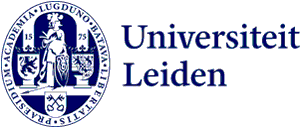26 search results for “irrigating agriculture” in the Student website
-
 Tim van de Meerendonk
Tim van de MeerendonkFaculty of Social and Behavioural Sciences
t.van.de.meerendonk@fsw.leidenuniv.nl | 071 5276760
-
 Peiyan Qin
Peiyan QinFaculty of Science
p.qin@cml.leidenuniv.nl | 071 5272727
-
 Jie Shuai
Jie ShuaiFaculty of Science
j.shuai@cml.leidenuniv.nl | 071 5272727
-
 Berent Baris
Berent BarisFaculty of Science
b.t.baris@cml.leidenuniv.nl | 071 5272727
-
 Isabel Siles Asaff
Isabel Siles AsaffFaculty of Science
m.i.siles.asaff@cml.leidenuniv.nl | 071 5272727
-
Early hunter-gatherers reshaped Europe’s ecosystems long before agriculture
In a new study published in PLOS One, Leiden archaeologist Anastasia Nikulina, together with an international team from France, Denmark, the United Kingdom and the Netherlands, challenges the long-held belief that early humans had minimal impact on their environment before the rise of farming.
-
 Yixu Wang
Yixu WangFaculty of Science
y.wang@biology.leidenuniv.nl | 071 5272727
-
 Akinyinka Akinyoade
Akinyinka AkinyoadeAfrika-Studiecentrum
a.akinyoade@asc.leidenuniv.nl | 071 5276701
-
 Mark Driessen
Mark DriessenFaculty of Archaeology
m.j.driessen@arch.leidenuniv.nl | 071 5271756
-
 Roberto Arciero
Roberto ArcieroFaculty of Archaeology
r.arciero@arch.leidenuniv.nl | 071 5272727
-
 Somayah Elsayed
Somayah ElsayedFaculty of Science
s.elsayed@biology.leidenuniv.nl | 071 5274561
-
 Joost Batenburg
Joost BatenburgFaculty of Science
k.j.batenburg@liacs.leidenuniv.nl | 071 5276985
-
Field trip to sustainable farm shows ‘what you can achieve if you chart your own path’
How to take ownership of your career? To find out, students from ‘Design Your Career as a Climate Change Maker’ visited a farmer who has done just that. They learned from him that it’s never too late to start working on something you believe in.
-
‘Poorer people often bear the brunt of sustainability initiatives’
The effects of sustainability projects on poorer, marginalised people should be considered at a much earlier stage. This is the opinion of Marja Spierenburg, Professor of Anthropology of Sustainable Development and Livelihood, who will give her inaugural lecture on 25 February.
-
 Annelou van Gijn
Annelou van GijnFaculty of Archaeology
a.l.van.gijn@arch.leidenuniv.nl | 071 5272389
-
Student Cabinet presents ‘coalition agreement’
The Student Cabinet, a shadow cabinet with students from the Dutch universities, has presented its first ‘coalition agreement’. As Minister for New Democracy, Leiden student Zeineb Romdhane says inclusion should form ‘the basis of our democracy’.
-
These were Leiden University’s interdisciplinary milestones of 2024
Connecting scientific fields, enhancing research and teaching, and providing innovative solutions to complex social issues: that is the idea behind interdisciplinary research. What did the university achieve in 2024? A small sample.
-
Sustainability Monitor 2024: Leiden University slashes carbon emissions and strengthens role in climate transition
The Sustainability Monitor 2024 reveals that Leiden University has again taken significant steps to become a more sustainable and future-proof university. Since 1990, its carbon emissions have decreased by 50 per cent and, compared with 2019, its natural gas consumption has dropped by 32 per cent. Its…
-
Climate and elections: these were your top stories from 2023
The year 2023 saw the earthquake in Turkey and Syria, the Wagner Group rebellion and wildfires and floods as all the weather records were smashed. Our most-read stories were about the climate crisis and the elections: here’s the list.
-
 Erik de Maaker
Erik de MaakerFaculty of Social and Behavioural Sciences
maaker@fsw.leidenuniv.nl | 071 5276612
-
 Gilles van Wezel
Gilles van WezelFaculty of Science
g.wezel@biology.leidenuniv.nl | 071 5274310
-
Top 450 continues: lawyer Lizzy van Dorp is the 100th entry
Lawyer, economist, politician and women’s rights activist Lizzy van Dorp is the 100th entry in our Top 450. Who or what is your favourite?
-
Leideners and researchers learn from each other at the Science Market
3 October University has become something of a tradition: a bit of science among the Leidens Ontzet celebrations. During the new and improved edition, the WetenschapsWarenMarkt (Science Market), visitors spoke to researchers about the nitrogen problem, making organs and the city’s connections with A…
-
Scientific breakthrough: evidence that Neanderthals hunted giant elephants
Neanderthals were able to outwit straight-tusked elephants, the largest land mammals of the past few million years. Leiden professor Wil Roebroeks has published an article about this together with his German colleague Sabine Gaudzinski-Windheuser in the Science Advances journal.
-
Science for Sustainable Societies: a new bachelor’s programme
The new interdisciplinary bachelor's program in Science for Sustainable Societies starts in the 2025-2026 academic year.
-
Value of science the focus of 448th Dies Natalis
The importance of science communication and cross-boundary collaboration, and the ‘mantra’ of diminishing social cohesion in society: these all came up at Leiden University’s 448th Dies Natalis. A panel discussion including Leiden’s mayor Lenferink, music and two honorary doctorates completed the special…
